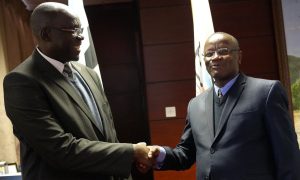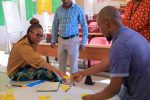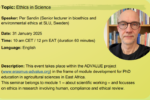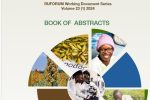The Impact of Innovation in Higher Education: Insights from the RUFORUM Visit to Botswana International University of Science and Technology
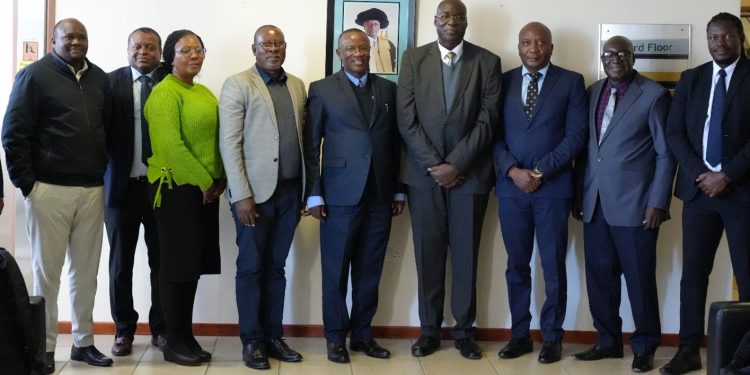
By: Evaline Acan
Gaborone, Botswana – In preparation for the upcoming Annual General Meeting of the Regional Universities Forum for Capacity Building in Agriculture (RUFORUM) scheduled for 1 – 5 December 2025, a delegation from the RUFORUM Secretariat paid a courtesy visit to the host country, the Republic of Botswana from 30th June -4th July 2025. In his welcoming remarks, the Vice Chancellor of Botswana International University of Science and Technology (BUIST), Prof. Otlogetswe Totolo highlighted the institution’s vision and commitment to advancing agricultural research and development in Botswana and the broader region. The Vice Chancellor articulated the importance of higher education institutions as catalysts for innovation and sustainability in agriculture, which is crucial for food security and economic empowerment.
One of the notable achievements highlighted during the visit was the launch of BOTSAT-1, Botswana’s first satellite dedicated to earth observation and agricultural monitoring. Prof. Otlogetswe elaborated on how BOTSAT-1 represents a significant milestone in utilizing technology to enhance agricultural productivity. This satellite, designed and developed by BIUST provides critical data on weather patterns, soil health, and crop conditions among others. Such data can empower farmers with the information they need to make informed decisions, ultimately leading to improved yields and sustainability.
Furthermore, he highlighted the Temo Letlotlo Crop Management System (CMS), an innovative platform designed to assist farmers in crop planning, pest management, and sustainable practices. The Temo Letlotlo CMS leverages local knowledge and scientific research to support farmers in optimizing their resources. By providing a user-friendly interface and tailored advice, the CMS is tailored to enhance food production and empower local farmers.
The BIUST leadership reflected a strong call to action for collaboration among development partners, higher education institutions, and private institutions. He emphasized the need to increase investment in research and development as a means to foster innovation. “The incorporation of academic expertise, financial support, and practical applications of science and technology can lead to the transformation needed to tackle the numerous challenges faced by the agricultural sector” he added.
Prof Patrick Okori, RUFORUM’s Executive Secretary and Prof. Otlogetswe Totolo, Vice Chancellor of BUIST
The potential for public-private partnerships was highlighted as a pathway to create sustainable funding models for agricultural initiatives. By investing in projects like BOTSAT-1 and Temo Letlotlo, universities can support not only the growth of state-of-the-art technology but also the economic empowerment of communities reliant to agriculture.
In his closing remarks, Prof. Okori applauded the collaborative spirit between the Government of Botswana and higher education institutions in Botswana. He further urged the universities to engage in strategic partnerships with development partners, venture capitalists (VCs), and academic institutions, to showcase how innovative projects can address pressing agricultural challenges. The launch of BOTSAT-1 and the Temo Letlotlo CMS are evidences to what can be achieved when academia collaborates with industry and development partners. Moving forward, embracing such collaborative approaches will be paramount in fostering a sustainable agricultural sector that not only meets the demands of today but also prepares for the challenges of tomorrow.
